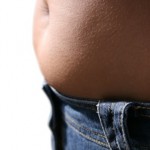Hi & Welcome back!!
Today i want to look at how lack of sleep affects your fat loss.
It doesn’t matter who you are the suggested minimum amount of sleep for adults is 8 hours. (Teenagers need more as do babies & toddlers) Some adults need less some need more but the average requirement is for 8 hours.
However current research in Australia & the USA shows that as much as 37% of the adult population aged over 30 is getting 6 hours or less sleep on a regular basis. Not only is this no good for your overall health & energy levels but it is disasterous if you are trying to cut your body fat levels.
Research is showing that long term sleep loss is related to an increase in obesity and diabetes. In other words just as you can’t out-train a bad diet, you can’t reap the benefits of eating smart and exercising tactically if you don’t get enough sleep. A chronic lack of sleep wastes all of your other good fatloss focussed work.
Lack of sleep affects a number of metabolism influencing areas: your energy level, your resting metabolic rate, your appetite control and your insulin sensitivity. The research shows that even partial sleep deprivation can manipulate some of the key hormones that impact fat loss . In particular when key hormones are affected it predisposeyou to fat storage and obesity by causing insulin resistance.
Not only can nsulin resistance lead to Type 2 diabetes, but it has been proven to increase fat storage. Regular readers of this blog know that when you suffer from increased insulin resistance your body must produce extra insulin to rid your blood stream of glucose. The reason your body produces extra insulin is because the insulin receptors in your cells have become les sensitive to the effects of insulin requiring more to do the same job. In effect it creates an override and over storage situation. In extreme cases the situation becomes so bad that your body cannot produce suficient insulkin to clear glucose and you end up needing to start taking insulin medications. In any case you fat loss stops and fat gain is an almost certainty.
Sleep loss increases both your appetite and your cravings for high GI carbs along with creating insulin resistance. Lack of sleep not only affects your insulin sensitivity but it also affects other hormones like cortisol and ghrilin. This means that insufficinet sleep sees you battling an increase in appetite when your blood sugars are not in control.
Cortisol is a stress hormone that directly influences blood sugar levels and is associated with increases in belly fat. When cortisol levels rise, fat loss stops. Dead. Some research has shown that even just 1 sleepless night can increase your cortisol levels. A study has shown that 4 hours sleep results in a 37% cortisol rise above baseline.
Muscle is an important part of having an efficient, fat buning metabolism. At rest muscle is a voracious consumer of calories. The more muscle the higher your resting metabolic rate. Cortisol is a catabolic hormone – it breaks down muscle for fuel and by this action it also elevates blood glucose levles which results in insulin spikes and so the Merry Go Round turns leading to a slower metabolism and increased fat storage. In a sense muscle CAN turn into fat…
Ghrelin is another hormone that lack of sleep affects as is our old friend Leptin. Ghrelin basically makes you hungry, leptin tells your brain when you’ve eaten enough. Not getting enough sleep raises ghrelin levles so you get more hungry and lowers Leptin so you don’t stop eating when you should.
If you stay awake longer you also have more opportunity to eat more, and because your energy levles are lagging you tend to go for the quick sugar fix. Which leads to insulin spikes etc etc…
Studies have shown that people actually eat more on average when they get less sleep, and they eat less healthily.
So you’ve got to get more sleep, not just for your health, but for your fat loss and metabolism. If you know you lack sleep then you need to begin to taking saction to improve the amount of sleep that you are getting.
Try these: aim for a regular bedtime, avoid alcohol for at least several hours before bed, ditto for coffee or tea, have a low GI snack with some protein close to bed time, try to keep your bedroom cooler rather than hot, read fiction if you are bed reader not non-fiction, make your to-do list in the early evening rather than late at night, exercise sometime during the day – just not close to bed time, have a bath or long hot shower and lastly avoid watching TV when lying in bed.
Sleep Tight!!




